
Becoming a blockchain developer: What you need to know
Written by Alchemy
Imagine you're back living in the late 90's, the internet is on the verge of becoming a household name, and you have a chance to get in early on the action.
Let’s say, you have an offer to be one of the first 12 hires at Yahoo. Would you take it?
Knowing what you know now, chances are high you probably would.
While we can't go back in time, fortunately there continue to be amazing opportunities for those on the forefront of tech innovation. And truth be told, we're now at a similar moment in history.
Cryptocurrencies, and blockchain-based technologies such as DeFi (decentralized finance), NFT (Non-fungible token) and DAOs (decentralized autonomous organizations) continue to play a large role in the way we do business and interact in 2022.
Billions upon billions of investment fund dollars are flowing into the crypto space with no signs of slowing down.
Below are just a few of the many up and coming companies looking to build the future of Web3.
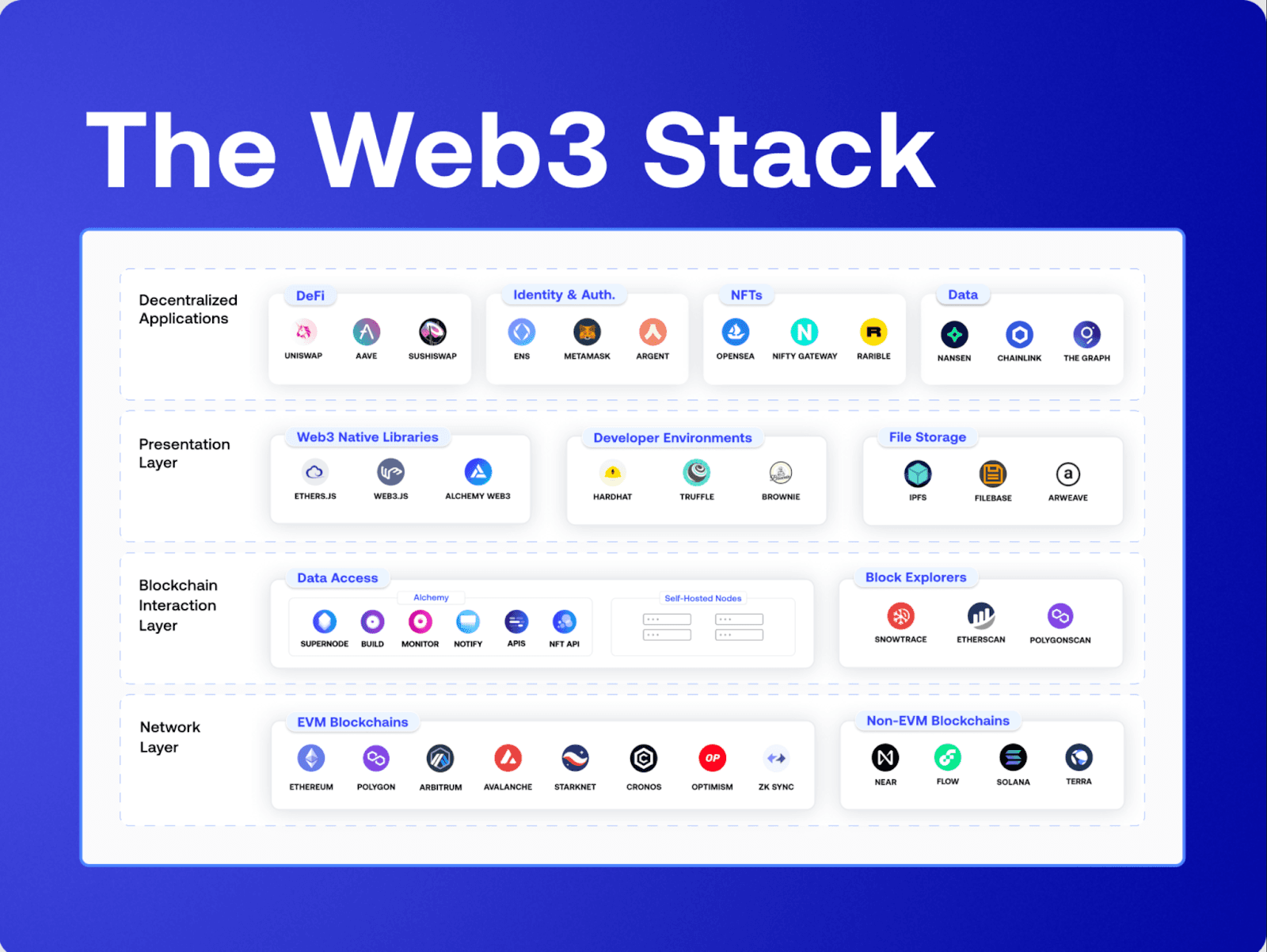
According to CoinGecko, a price-tracking website for crypto assets, the combined market cap of cryptocurrency globally is just shy of 2 trillion USD (as of H1 2022).
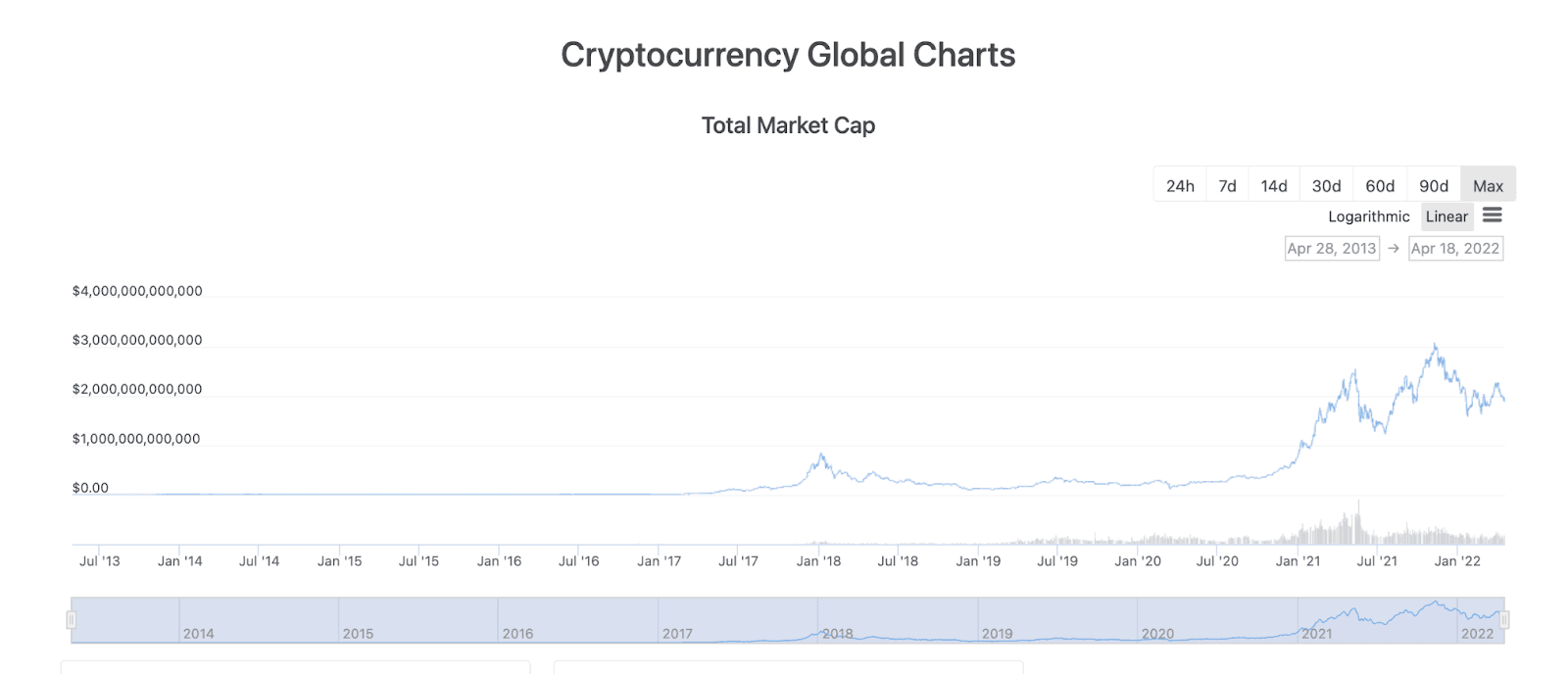
But enough about the numbers. What does this mean for you?
Is blockchain development a good career?
One of the most lucrative career paths right now is becoming a blockchain developer. According to Talent, an average blockchain developer makes $145k a year. With the demand for blockchain developers only continuing to grow, now is the time to get involved.
As a blockchain developer, you're also in the unique position to get a head start on many opportunities, for example, investing in early stage projects.
Developing the blockchain helps you recognize projects likely to succeed, and avoid ones that have no traction. You're seeing in real time what works and what doesn't, and you’re building the future of Web3 first hand.
What do blockchain developers need to know?
Some of the skills you need to know as a blockchain developer include programming languages like Javascript, Python, and Solidity and knowledge of some key concepts like blockchains, consensus mechanisms, hashing functions, gas, and more.
If you have the knack for learning new technologies and are a developer at heart there's no shortage of opportunities to succeed professionally. But you’re going to need some skills and need to understand some key concepts in blockchain development to get you the rest of the way.
Here are some of the basics you’ll want to focus on.
5 skills you need to know to become a blockchain developer
1. Popular blockchain programming languages
As a blockchain developer, you're likely going to need to learn multiple programming languages, but there's no getting around mastery of Javascript.
Javascript is a versatile and portable language, widely used in the blockchain ecosystems. For instance, you can just use Javascript libraries to build decentralized applications (dApps) that interact with already existing smart contracts.
It’s great if you're also proficient in other languages: C++ (the legendary Bitcoin was coded in this very flexible language for example) or Python. The latter is very useful if you want to focus on backend development and advanced scripting.
We highly recommend you spend some time going through the Ethereum Javascript resources to help you get up to speed. Of course, you'll also want to invest in learning Solidity which we cover in-depth here.
The fun doesn't stop with learning multiple coding languages.
2. The fundamentals of blockchain technology
Understanding the foundations of blockchain technology is crucial for blockchain developers. Reading Bitcoin and Ethereum whitepapers are a must. But you also need to understand a few key concepts.
For example, it's important to know that at its core, a blockchain is a type of distributed ledger technology (DLT). It’s a protocol that enables the functioning of a database with no central administrator, with blocks of data spread across multiple locations or entities. Blockchains can be used for cryptocurrency, yes, but the use cases don't stop there. In the future, we'll likely continue to see organizations and perhaps even countries use the blockchain to hold elections and decide how various government funds are spent. Blockchains also provide a sense of accountability in the sense that most are public ledgers that can be viewed by anyone. One can imagine how this can affect the political and business climate as their use becomes more widespread. While blockchains won't solve all of the world's problems, we're only just getting started understanding the many powerful use cases they can provide.
3. Blockchain consensus mechanisms
The pivotal invention of blockchain and cryptocurrencies is the consensus mechanism. It’s the procedure by which a decentralized peer-to-peer system with no central authority makes decisions. It’s a way to agree which transactions to add and in what order to the ledger.
Here's a simple example:
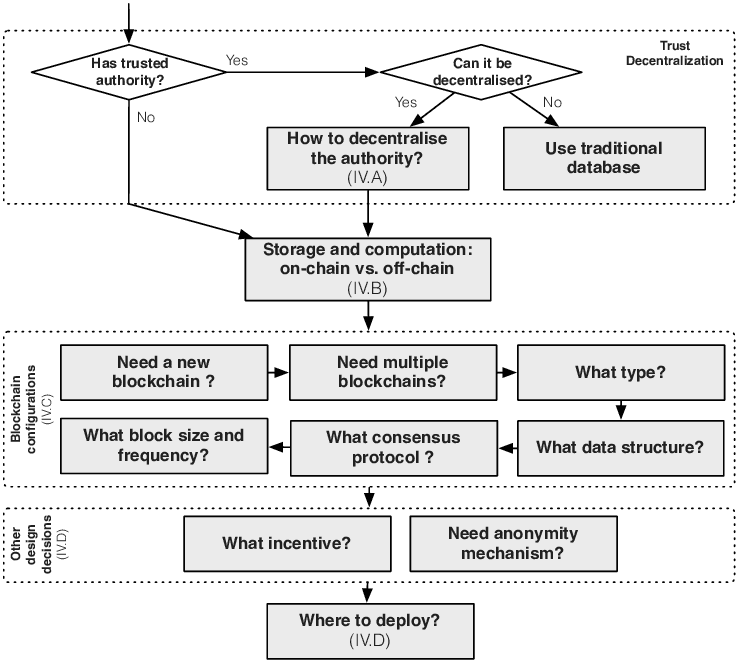
Proof of Work and Proof of Stake
While blockchains typically have many consensus mechanisms as discussed above, they all serve the same goal —to ensure that records in the ledger are trustworthy
The two most prevalent consensus mechanisms:
Most well known for powering the Bitcoin network, proof of work, describes the process of using computational power (via miners) to solve complex mathematical equations, helping ensure the blockchain is both secure and accurate.
In return, miners, who invest the resources needed to solve these equations are rewarded Bitcoin.
While proof of work powers Bitcoin, it has been proven to be fairly energy intensive, something many new blockchains such as Solana are trying to avoid. That said, blockchains that use proof of work, tend to have a high level of security and provide a decentralized way of verifying transactions on the network.
Proof of stake, on the other hand, is an alternative to proof of work with significantly less energy costs. Instead of using energy to validate transactions, Proof-of-Stake uses monetary penalties to enforce correct behavior from validators.
"Energy consumption is one major difference between the two consensus mechanisms. Because proof-of-stake blockchains don’t require miners to spend electricity on duplicative processes (competing to solve the same puzzle), proof of stake allows networks to operate with substantially lower resource consumption," writes Coinbase.
Ethereum, which originally launched using proof of work, is now using Proof-of-Stake.
Here's a further breakdown of how both consensus mechanisms compare.
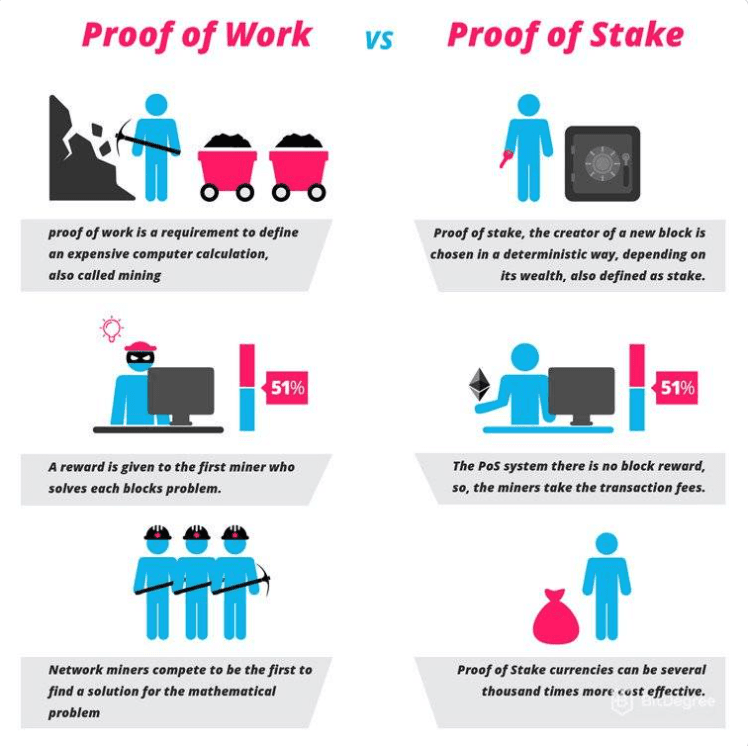
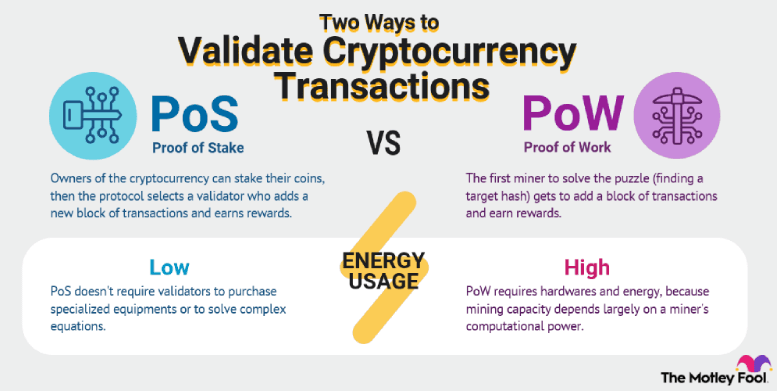
There's plenty of great resources online for you to understand the basics of both consensus mechanisms, which we highly recommend you spend time studying.
Of course, as crypto and blockchains continue to evolve, there are most certainly going to be additional consensus mechanisms created and used.
4. Hashing functions
Beyond consensus mechanisms, you're also going to need to understand hash functions.
Hash functions are used to write new transactions into the blockchain and to ensure the data encoded is secure.
Hashing is the operation of turning a random input of data into a fixed size string of text, using a mathematical function. In simple terms, this means that a string of text will be changed into a settled array of numbers and letters through an algorithm.
These functions ultimately ensure the immutability of the blockchain—the ability to remain a permanent history of transactions. But this is also why blockchain development is a bit more difficult than programming in centralized ecosystems.
Designing these protocols takes a long time, because you need to craft them with perfection. In theory, after uploading code, you can’t change it with very few exceptions.
We recommend opting in to as many online courses as you can to get a better understanding of this technology.
For starters:
Princeton University has an excellent free course on cryptocurrency.
MIT also has some great courses.
This lecture by Vitalik Buterin (co-founder of Ethereum) also gives a great explanation and introduction to some of the technical aspects of blockchains.
Beyond video lectures and courses there are also some great books.
By no means is this an exhaustive list, but if you read and apply the material from above, you'll be well on your way to becoming a blockchain developer.
5. Gas, miners, and the cost of running smart contracts
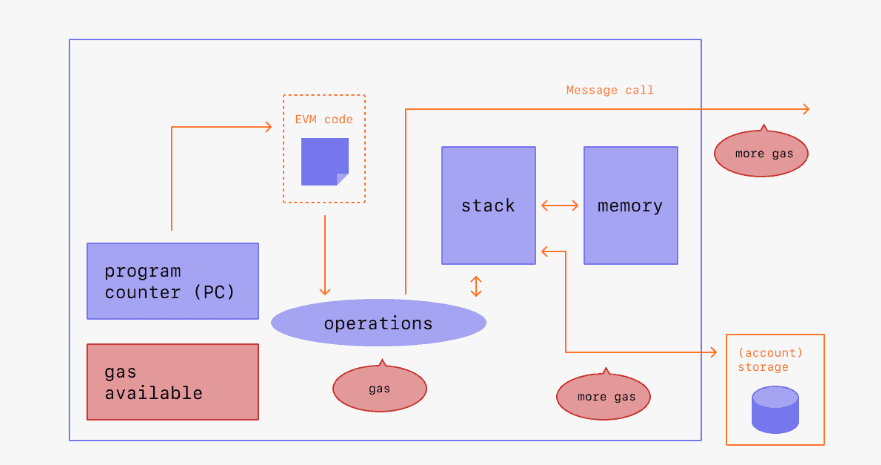
As a blockchain developer, you're also going to need to understand the role "gas" plays in the Ethereum ecosystem.
The Ethereum Virtual Machine (the place where all transactions execute computationally) has a very limited amout of space. At any point in time, there is a varying level of demand for the limited supply of computational space.
A constant auction is occurring, where users can pay for "gas", or a unit of computational power on Ethereum.
As a user, knowing how to save on gas fees is better for your crypto portfolio. Working towards making gas more cost friendly while also supporting miners fairly, is a priority for many developers in the crypto space.
How do you connect with the blockchain developer community?
The best way to connect with the blockchain developer community is by joining Discord servers and communities, engaging web3 developers and thought leaders on Twitter, and participating in web3 hackathons and conferences.
It's no secret that knowing how to program is going to play the largest role in blockchain developer success, but there are many things you can do that don't involve a single line of code.
The community of blockchain creators meets primarily in two places on the web: Discord and Twitter. The most important discussions take place there, and that’s also where you can build relationships and look for jobs.
Unlike the traditional workplace, you don’t need to have a serious suit photo on LinkedIn. In the world of Web3, what matters most is your substantive knowledge—your blockchain sweat equity mainly gained from practice, tracking crypto influencers, taking courses, participating in hackathons etc.
If you post interesting content about crypto and blockchain, you can meet people and get noticed even if you are anonymous with a funny picture as an avatar.
Here are some great Discord servers and communities where you should be present:
And here are some top crypto and blockchain thought leaders you should consider following:
Additionally, while not everyone's cup of tea, attending conferences can be a great way to connect in person and develop professional relationships. We couldn't possibly list them all, but here is an extensive list to get you started.
You’re a future blockchain developer in the making
Whether you're new to the world of programming, or just want to level up your blockchain career, there's no way around it—you're going to need to put in the work.
That said, crypto and blockchain technology is transforming the world of finance, business, culture and more and the opportunities are endless.
Following the suggestions and tips in this guide, will get you well on your way to becoming a developer at the forefront of this global transformation. Alchemy is one of the leading node service providers in Web3. Our other offerings include Enhanced APIs, Notify API and our newest addition NFT API.

Related overviews
Explore popular programming languages for onchain apps.
Learn About the Challenges and Solutions Engineers Face for Monitoring Their Dapp's Health
This guide shares best practices on how to best prepare for launching your dapp

Build blockchain magic
Alchemy combines the most powerful web3 developer products and tools with resources, community and legendary support.